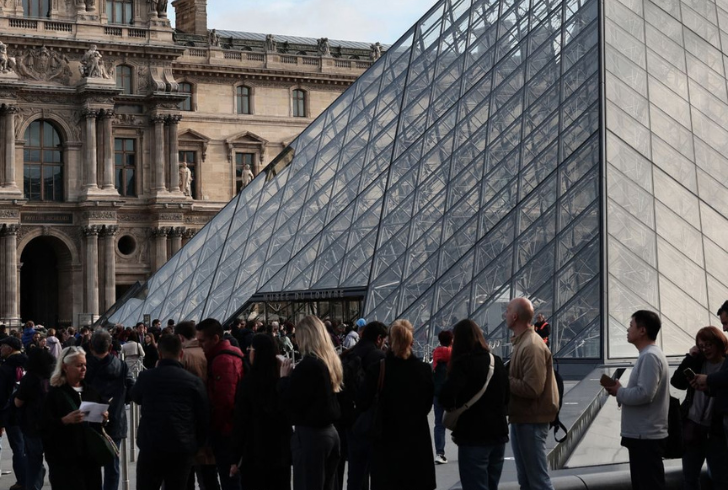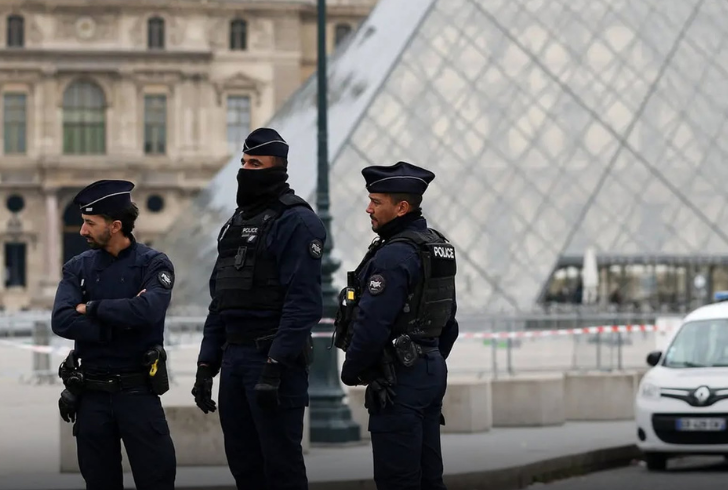The theft at the Louvre in Paris shocked the world. Priceless jewels vanished overnight, leaving museum leaders everywhere on alert. Within hours, major institutions in Washington—like the Smithsonian and the National Gallery of Art—held emergency meetings. Their question was simple but chilling: Could this happen here?
Doug Beaver, security specialist at the National Museum of Women in the Arts, said his team moved fast. “We reviewed the incident,” he shared. “Then, by the second day, we built a plan and started putting actions in place.” Those talks marked the beginning of a wider effort across museums to find balance—how to protect priceless collections without losing the warmth that makes art inviting.
Louvre Museum Security vs Accessibility

Instagram | nbcnews | The Louvre heist sparked a global debate on balancing museum security with public accessibility.
The Louvre heist reignited a sensitive debate. How do museums protect treasures while staying open and welcoming? Across the world, leaders are reviewing security plans while trying to keep art accessible.
“The biggest thing in museums is the visitor experience,” Beaver explained. “We want people to come back. We don’t want them to feel like they’re walking into a fortress.”
That idea lies at the heart of every museum’s purpose. Art exists to connect with people, not to hide behind barriers. Yet every theft makes it harder to maintain that connection.
Louvre director Laurence des Cars called the incident “a terrible failure” of security. Soon after, 57 museums signed a public letter of support in Le Monde. It stated that “museums are places of transmission and wonder… not strongholds or secret vaults.” The message was clear—security must not erase the spirit of openness.
The Challenge of Old Security Systems
French police confirmed what many feared: outdated equipment left the Louvre vulnerable. Paris Police Chief Patrice Faure told lawmakers that aging systems weakened the museum’s defenses.
François Chatillon, France’s chief architect of historical monuments, added that most European museums sit inside old structures. “We must find solutions, but not rush them,” he said. “We’re not putting armored doors and windows everywhere because of one burglary.”
These historic buildings were never designed for modern security systems. Chatillon also pointed out that museums face many pressures—security, preservation, and climate concerns—all competing for attention and funding.
Protecting Art While Keeping It Accessible
Nicholas O’Donnell, attorney and editor of The Art Law Report, compared museum security to a chess match. “You’re always fighting the last war,” he said. Recently, many museums have focused on stopping activists who damage art for attention.
When the Louvre robbery began, guards acted fast to protect visitors. O’Donnell agreed that it was the right choice. Yet, he said, security teams must prepare for every threat. “You want people to interact with the art,” he explained. He mentioned how the Mona Lisa now sits behind glass, making it hard to enjoy up close.
After the heist, Berlin’s Prussian Cultural Heritage Foundation—hit by a robbery in 2017—announced a review of its security systems. It urged global cooperation and stronger investment in both technology and staff.
Smarter Security Starts With Small Changes

Instagram | humor | The Louvre theft is pushing museums everywhere to urgently tighten internal controls.
Beaver believes the Paris theft will push museums everywhere to tighten internal controls. One focus area is construction access. “Contractor entry has often been too loose,” he said. The Louvre thieves used this gap, entering disguised as workers in yellow vests.
Beaver’s approach centers on control, not fear. “The goal isn’t to remove risk—it’s to manage it wisely.” Since taking his role, he has installed a weapons detection system and limited what visitors can bring. Some guests appreciate the safety. Others find it restrictive.
Robert Carotenuto, former security chief at the Metropolitan Museum of Art, agrees that balance is key. “If you focus on one risk, like protesters, your system will fail somewhere else,” he said. “You might stop activists but overlook fake workers breaking in through a side door.”
Preserving the Magic of Museums
Patrick Bringley, a former Met security guard and author of All the Beauty in the World, offered an emotional take. “Museums are special because they’re accessible,” he said. “They show objects thousands of years old, often without even a pane of glass.”
That openness is part of what makes museums so enchanting. Once that trust is violated, though, rules tighten and the atmosphere shifts. “Art should invite you in,” Bringley reflected. “But when trust is broken, museums are forced to pull back, and some of the generosity that defines them gets lost.”
The Louvre heist has become a symbolic moment, urging museums to reassess what safety really entails. It’s no longer just a matter of better locks or smarter cameras—it’s about finding equilibrium between safeguarding what’s precious and keeping it accessible.
Museums now face the challenge of evolving wisely, pairing technology with empathy so that security never smothers wonder. After all, art’s value isn’t only in its preservation—it’s in its ability to remain open to everyone.




